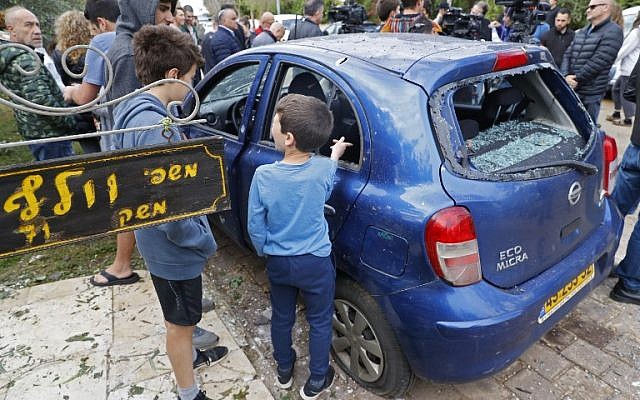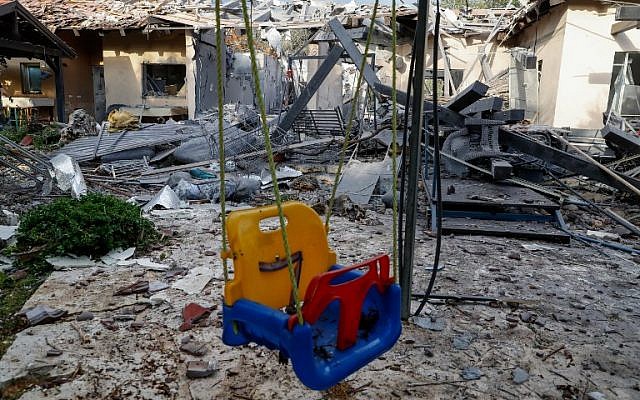Rishon Lezion, Petah Tikva, Beersheba, Ashdod, Kiryat Gat also make fortified areas accessible to public, as Israeli forces begin retaliatory strikes on Hamas targets

The cities of Tel Aviv, Rishon Lezion and Netanya were among a number of major Israeli population centers to open their bomb shelters on Monday evening in anticipation of possible rocket fire from the Gaza Strip.
The directive to open the shelters came hours after an early morning rocket strike on a house in central Israel that wounded seven people. The army on Monday evening began carrying out retaliatory strikes in the enclave.
The cities of Beersheba, Ashdod and Kiryat Gat in the south also opened their shelters. To the north of Tel Aviv, the municipalities of Netanya, Herzliya, Kfar Saba, Hod Hasharon, Ra’anana, and Rehovot followed suit.
The Israel Defense Forces (IDF) Home Front Command issued security directives to residents of the communities surrounding the Gaza Strip.
Around the Gaza Strip, public gatherings have been restricted to no more than 300 people, and only indoors. School studies are only permitted in protected buildings, employees in “non-essential” professions are only permitted to work if a bomb shelter was nearby, public services are to be scaled back and agricultural workers should only go out to the fields in coordination with the military
The Home Front Command is responsible for ensuring civilian safety.

At about 5:20 a.m. on Monday, a long-range rocket fired from Rafah in the southern Gaza Strip hit a home in the central Israeli agricultural community of Mishmeret. The structure was largely destroyed and two people inside were moderately wounded. Five others, including two small children, were lightly hurt.
The military has deployed additional batteries of its Iron Dome missile defense shield and two reserve brigades have been called up to bolster forces around the Gaza region. A small number of air defense reservists and other select units have also been recruited at short notice.
Military officers met with local government heads in the communities around the Gaza Strip to prepare them for the retaliatory strikes against terrorist targets in the coastal enclave — and the expected Palestinian responses to these counterattacks.
Train service from Ashkelon to the Gaza-adjacent town of Sderot was also halted, Israel Railways said.
Following the rocket strike on Mishmeret, Israel closed its two Gaza crossings — Kerem Shalom, which is used for goods, and the Erez Crossing for passengers — until further notice, Israel’s military liaison to the Palestinians Maj. Gen. Kamil Abu Rukun said.
Abu Rukun also announced that following the attack, Israel would restrict the permitted fishing zone around the coastal Gaza Strip.
IDF Spokesperson Ronen Manelis said Hamas was responsible for the rocket attack, noting that the projectile used was manufactured by the terror organization and that it was fired from one of its launchpads in Rafah.
There were already fears that violence would ramp up this week, with Hamas hoping to draw hundreds of thousands of rioters to the fence on Friday to mark a year of so-called March of Return protests, which began on March 30, 2018.
As reported by The Times of Israel
